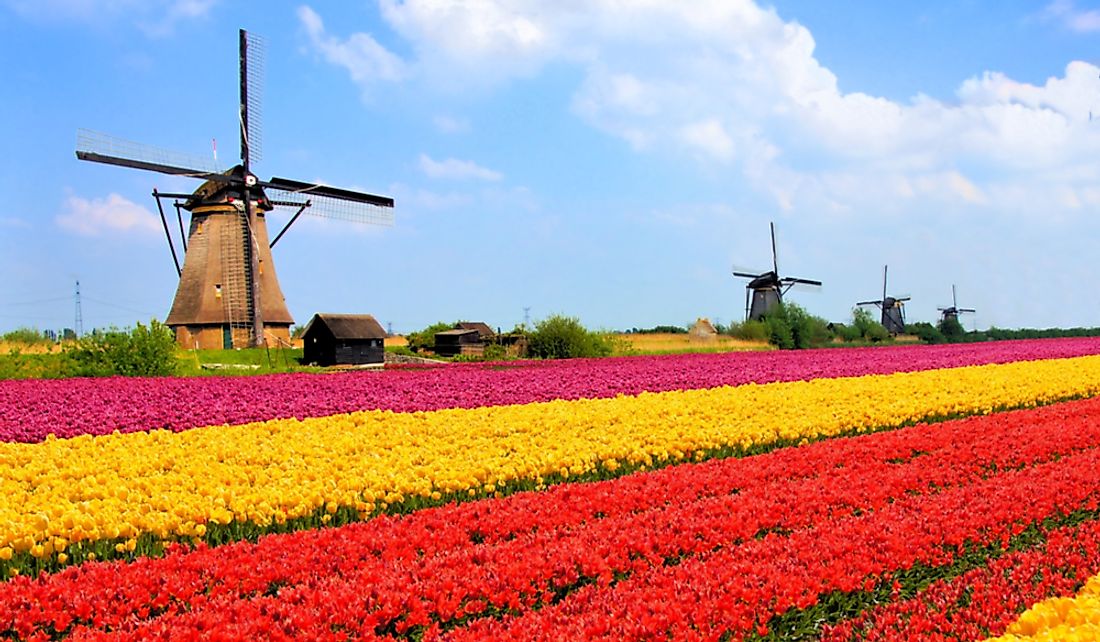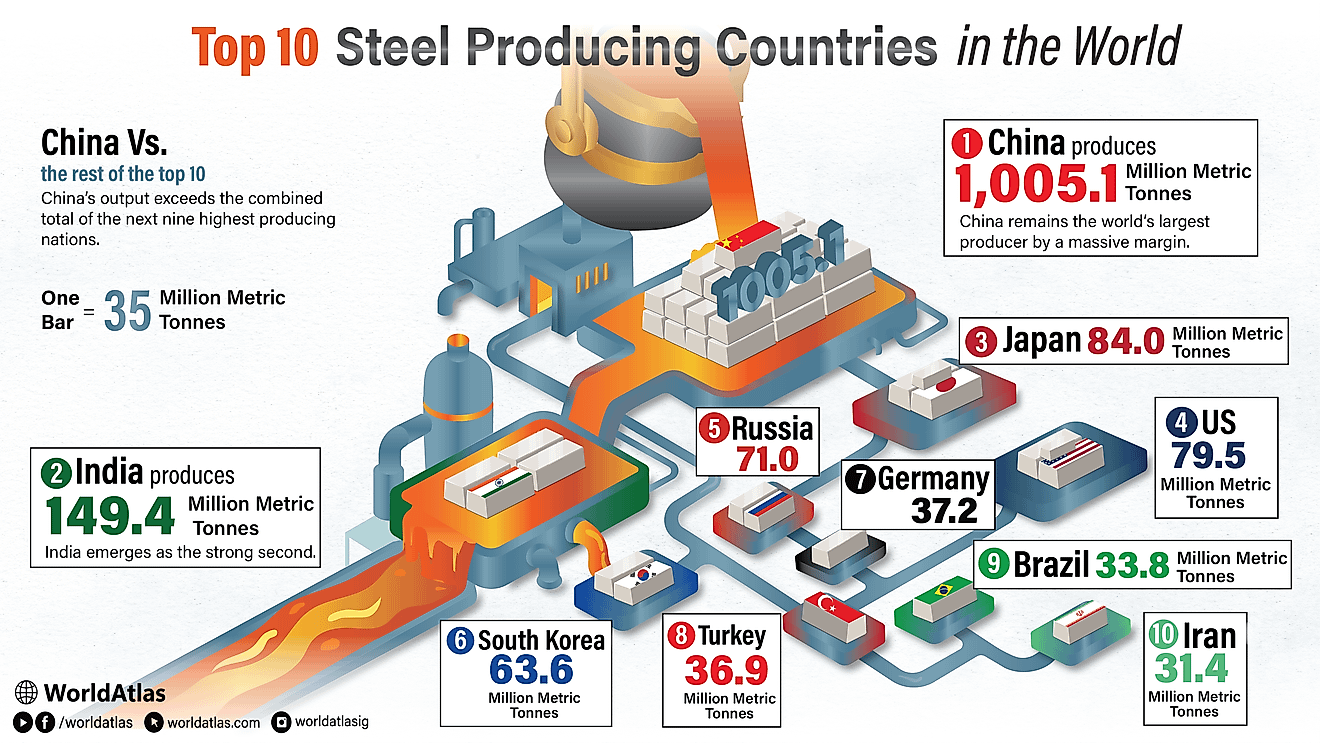The Biggest Industries In The Netherlands

The Netherlands is a country located in northwestern Europe, with additional island territories in the Caribbean. The country covers an area of 16,040 square miles and has a population of 17 million. The economy of the Netherlands is highly developed. In fact, its economy ranks as the 17th largest in the world and plays an important role in the European economy. In 2017, the Swiss International Institute for Management Development ranked the Netherlands the fifth most competitive economy in the world. The country also has a high level of economic freedom. According to the Index of Economic Freedom, the economy of the Netherlands ranks as the 13th most free market capitalist economy in the world. The Netherlands is one of the world’s 10 leading exporters. The foodstuffs industry is one of the country's biggest industries, while other major industries include energy, chemical, trade, machinery, metallurgy, electrical goods and services, and tourism.
Agriculture and Food Industry
The Netherlands is one of the world’s top exporters of food and agricultural products, thanks to its highly mechanized agricultural sector and innovative agri-food technology, favorable geographic location in the heart of Europe, mild climate, and flat fertile soils. The agro-industry of the Netherlands focuses on international exports, accounting for about 21% of the country's total value of exports. Netherlands ranks first in the European Union (EU) in terms of agricultural exports, and ranks second in the world, after the United States (US). The agriculture industry also employs 4% of the Dutch labor force and produces large surpluses for the food and processing industry. Some of the food and agricultural products exported by the Netherlands include tomatoes, chilies, cucumbers, apples, flowers, flower bulbs, and fresh-cut plants.
Energy Industry
The energy industry in the Netherlands is one of the country’s key exports and serves as a source of employment and national income. In fact, it is estimated that 25% of all natural gas reserves in the European Union (EU) are located in the Netherlands. Large natural gas deposits were discovered in the Netherlands in 1959, and has generated significant revenues for decades. The Netherlands has no other mining resources since the closure of its coal mining industry in 1974. The Groningen Gas Field, located near Slochteren, is one of the largest natural gas fields in the country. However, since the discovery and focus on natural gas, the manufacturing sector in the Netherlands has declined significantly. This came to be known as the Dutch Disease theory. Additionally, the extraction of gas has led to problems of sinking ground and tremors. In 2014, the government resolved to significantly decrease its production of natural gas.
In addition to natural gas, other segments of the energy industry are important to the country’s economy. Thermal stations produce the bulk of electricity in the Netherlands. The country also has only two nuclear facilities, and 4% of the country’s electricity is produced at the Borssele Nuclear Power Station, while the nuclear reactor in Delft is a research station at Delft University of Technology. Additionally, the Netherlands is a leader in wind energy at sea, biomass processing, and greenhouse farming.
Chemical Industry
The chemical industry of the Netherlands is one of the country's leading economic sectors. The country contains the headquarters of 19 of the world leading multinational chemical companies, including Royal Dutch Shell, DSM, AkzoNobel, and BASF. The Netherlands is also home to research institutions such as the Netherlands Organization for Applied Scientific Research (TNO) and numerous universities. The country is one of Europe’s leading suppliers of chemical products and services, and the extensive transport network in the Netherlands makes raw materials easily accessible. Its chemical industry focuses on developing smart materials and solutions in five areas: healthcare, energy, food security, climate and resources, and transport. The industry also works across many sectors, bringing together various stakeholders to develop smart materials and new solutions.
Metallurgy Industry
The metallurgy industry is an important part of the manufacturing sector in the Netherlands. The industry is made up of different components, such as equipment, services, consumables, and software. The metallurgy industry in the Netherlands is highly dependent upon both traditional craftsmanship and modern techniques of production. The industry works together with other sectors such as energy and power, healthcare, mining, automobile, real estate, and private shipbuilding. Examples of key companies in the country's metallurgy industry include Kapco Hindustan Machine Tools, DMG Mori, Colfax, BTD Manufacturing, Atlas Copco, and Amada.
The Netherlands is among the world's top 20 largest steel exporters. In 2017, the Netherlands exported 11.3 million metric tons of steel, and in 2016, the country accounted for 2% of all global steel exports. The Netherlands exports steel to more than 160 countries and territories, and its top markets include countries in the European Union (Belgium, Germany, France, Italy, the United Kingdom, and Spain). The other top market is the United States.
Tourism Industry
The Netherlands is known for its rich art and historical heritage. Even though tourism is a relatively small sector in the Netherlands, it contributed to 9.6% of the country’s total employment, and 5.4% of its gross domestic product (GDP) in 2012. North Holland was the most visited province by tourists in 2011, followed by South Holland. There are also seven UNESCO World Heritage sites located throughout the Netherlands.
Other Sectors
In addition to the industries listed above, the Netherlands is also involved in the fishing, banking, electrical engineering, and creative and high-tech industries. Each of these industries contributes to the country's developed economy. Currently, a major focus of the Netherlands is to upgrade machinery in the agricultural sector and extend transport networks.











